14 Results
Gene Signature at Birth Predicts Sepsis in Newborns Before Signs Appear
A four-gene signature in newborns’ blood at birth predicts before symptom onset whether a baby will develop neonatal sepsis during the first week of life.

An Emergency Department Screening Strategy Identifies Asymptomatic and Undiagnosed Syphilis
As syphilis rates continue to rise in the United States, emergency departments may be a way for people with limited healthcare access to get screening and treatment. A NIAID study derived an emergency department syphilis screening strategy to help people get diagnosed before their infection reaches an advanced stage. This approach could reduce disease burden and prevent cases of congenital...
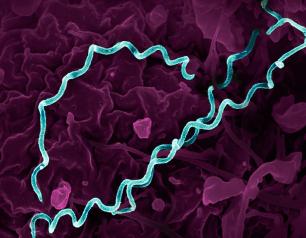
Proof-of-Concept Study Shows an HIV Vaccine Can Generate Key Antibody Response in People
An HIV vaccine candidate elicited trace levels of HIV broadly neutralizing antibodies and high levels of other key immune cells in an early-stage clinical trial. This immune response is an important signal that, if antibody levels can be further amplified, the vaccination strategy might be able to prevent HIV.
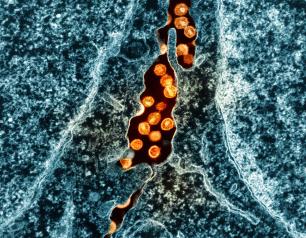
Exploring a Meningitis Vaccine for Gonorrhea Prevention
A preventive vaccine for gonorrhea would be a major advance in public health, according to an editorial co-authored by NIAID Director Jeanne Marrazzo. The genetic sequences of the bacteria that cause gonorrhea and meningitis B, are closely related. This has led researchers to explore whether the 4CMenB vaccine, approved by the Food and Drug Administration for meningitis B, might also prevent gonorrhea. NIAID is sponsoring an efficacy study of the 4CMenB vaccine for gonorrhea prevention.
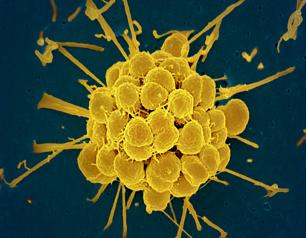
The HIV Field Needs Early-Stage Investigators (VIDEO)
by Jeanne Marrazzo, M.D., M.P.H., NIAID Director
The HIV research community is led by scientists with deep personal commitments to improving the lives of people with and affected by HIV. Our collective decades of work have generated HIV testing, prevention and treatment options beyond what we could have imagined in the 1980s. Those advances enable NIAID to explore new frontiers: expanding HIV prevention and treatment modalities, increasing understanding of the interplay between HIV and other infectious and non-communicable diseases, optimizing choice and convenience, and building on the ever-growing knowledge base that we need to develop a preventive vaccine and cure. The next generation of leaders will bring these concepts to fruition, and we need to welcome and support them into the complex and competitive field of HIV science.
Sexually Transmitted Infections—A Closer Look at NIAID Research
Sexually transmitted infections (STIs) are caused by bacteria, viruses, or parasites. NIAID supports research across the spectrum from basic to clinical science to develop effective diagnostic, preventive and therapeutic approaches to STIs in alignment with the National STI Strategic Plan. In recognition of National STI Awareness Week, NIAID shares a snapshot of new projects and recent scientific advances in STI research.

NIH Ending the HIV Epidemic Projects Bridge Gaps Between HIV Research and Public Health Practice (VIDEO)
The National Institutes of Health recently issued $26M in awards to HIV research institutions in its fifth year supporting implementation science under the Ending the HIV Epidemic in the U.S. initiative. These awards are the latest investments in a program that is rapidly and rigorously generating evidence to inform the unified domestic HIV response by agencies in the Department of Health and Human Services.
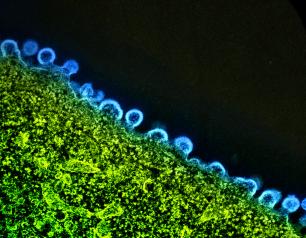
HIV Treatment Research and Key Takeaways: Dr. Dieffenbach’s Final Update from CROI 2024 (VIDEO)
On March 6 as the 2024 Conference on Retroviruses and Opportunistic Infections (CROI) was winding down, HIV.gov spoke with Carl Dieffenbach, Ph.D., director of NIAID's Division of AIDS, about highlights of long-acting HIV treatment research discussed at the conference. He spoke with Brian Minalga, M.S.W., deputy director of the NIH-supported Office of HIV/AIDS Network Coordination. Watch their conversation.

Centering Women and Girls’ Health in HIV Research
Women account for approximately 23 percent of people with HIV in the United States. In recent years, women aged 25 to 34 comprised the highest number of new diagnoses. Furthermore, Black women, transgender women, and women aged 13 through 24 are more likely to experience health disparities associated with lack of access to HIV testing, treatment, and prevention resources. This weekend marked National Women and Girls HIV/AIDS Awareness Day. NIAID supports research programs that focus on HIV and other health outcomes in women to inform and enable more targeted and effective HIV prevention, care, and treatment.
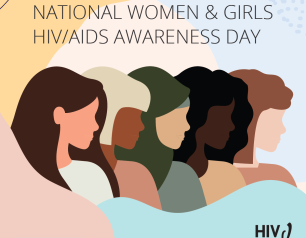
Doxy-PEP, HIV Vaccines and Community-Engaged Research: Discussions with Carl Dieffenbach and LaRon Nelson at CROI 2024 (VIDEO)
During the first full day of presentations at the 2024 Conference on Retroviruses and Opportunistic Infections, HIV.gov spoke with Carl Dieffenbach, Ph.D., director of NIAID’s Division of AIDS, and LaRon Nelson, Ph.D., R.N., F.N.P., F.N.A.P., F.N.Y.A.M., F.A.A., professor and associate dean at the Yale School of Nursing. They discussed Doxy-PEP for STI prevention, HIV vaccines, community engagement in research, and more. Watch their discussions.

NIAID’s Dr. Jeanne Marrazzo Previews CROI 2024 (VIDEO)
HIV.gov opened their coverage of the 2024 Conference on Retroviruses and Opportunistic Infections (CROI) today with a conversation with NIAID Director Jeanne Marrazzo, M.D., M.P.H. She spoke with Miguel Gomez, director of HIV.gov about what she’s looking forward to hearing about at the conference, how the studies presented at research conferences ultimately get translated into clinical practice or HIV prevention or treatment services, and the important roles of early-career investigators. Watch their conversation with Dr. Marrazzo.

Working Together to End HIV in Black Communities
Health inequities and disparities disproportionately affect Black people and other historically marginalized groups at above average rates. NIAID highlights ongoing efforts to reduce the burden of HIV among Black Americans while increasing the representation of Black communities and researchers in HIV science.
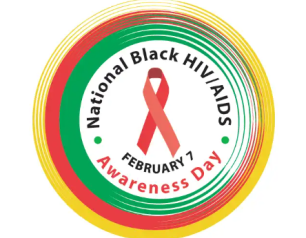
The STOMP Trial Evaluates an Antiviral for Mpox
NIAID launched the STOMP trial to determine whether the antiviral drug tecovirimat can safely and effectively treat mpox. In a video, Dr. Cyrus Javan of NIAID's Division of AIDS explains the importance of the STOMP trial.
NIAID-Supported Research is Advancing the Response to Surging Syphilis Rates
Syphilis, a common sexually transmitted infection (STI) caused by the bacteria Treponema pallidum, can result in adult neurological and organ damage, as well as congenital abnormalities, stillbirths, and neonatal deaths. More research is urgently needed to diversify the diagnostic, preventive, and therapeutic options available to alter the course of the public health threat of syphilis. NIAID supports research to address these areas including studies featured at the recent STI & HIV World Congress in Chicago.


